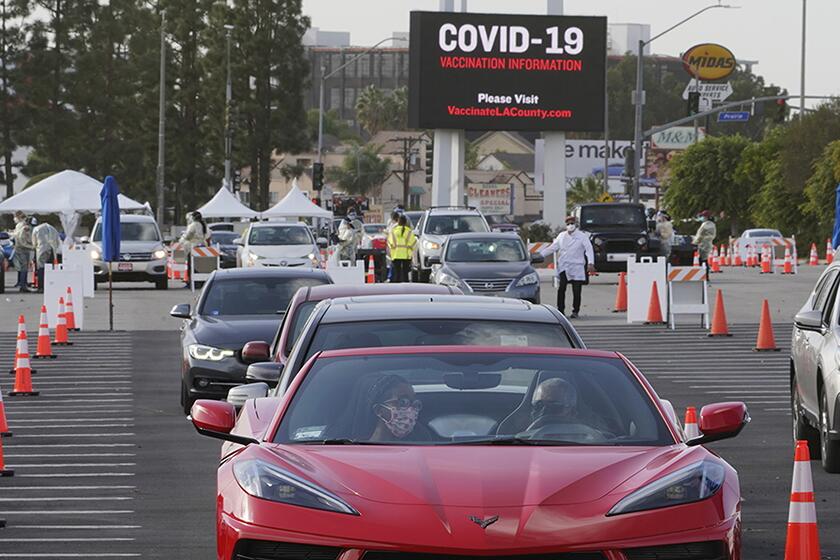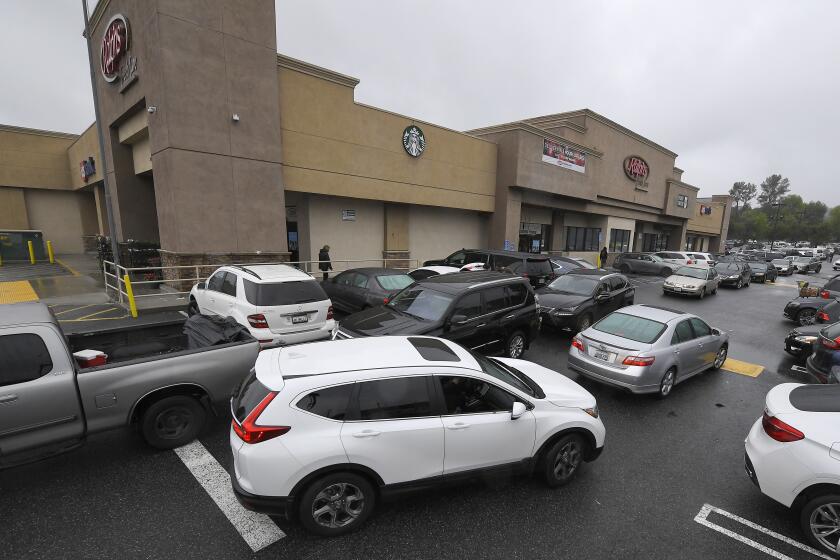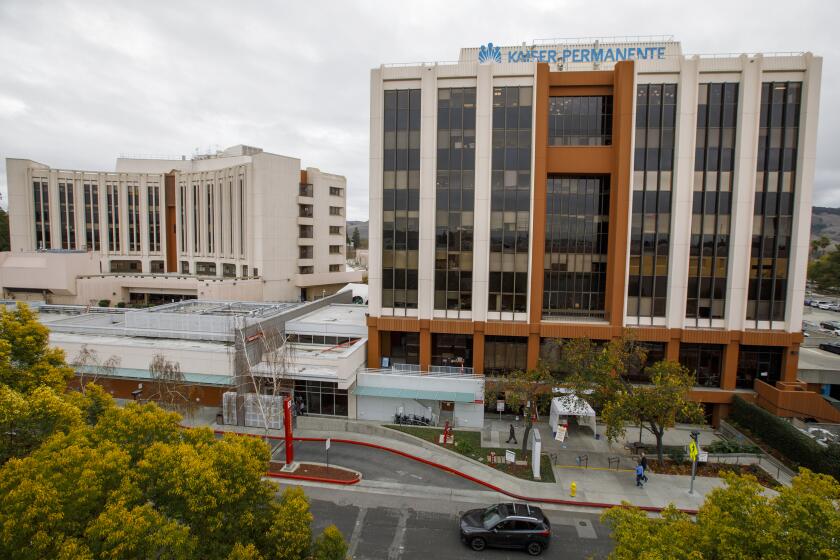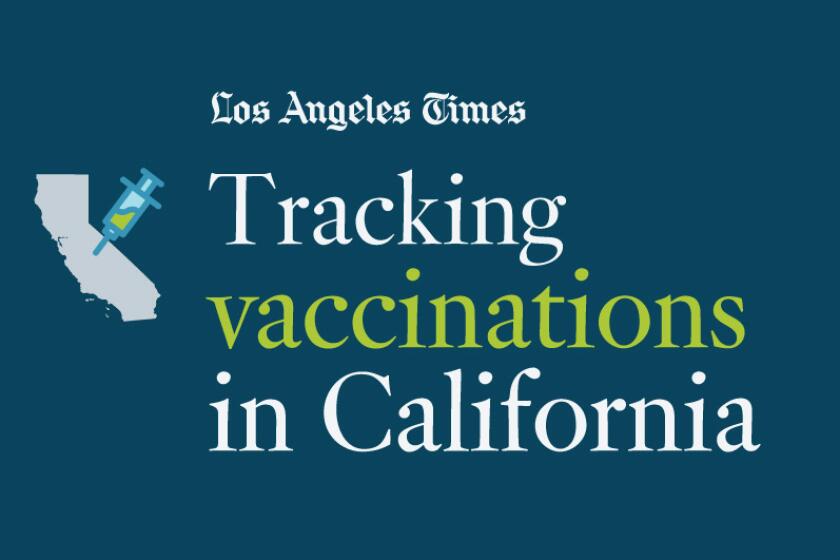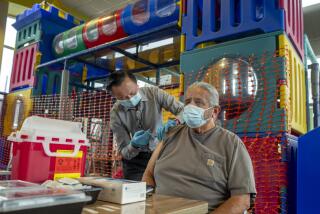California needs more COVID-19 vaccine, but areas like L.A. are actually getting less
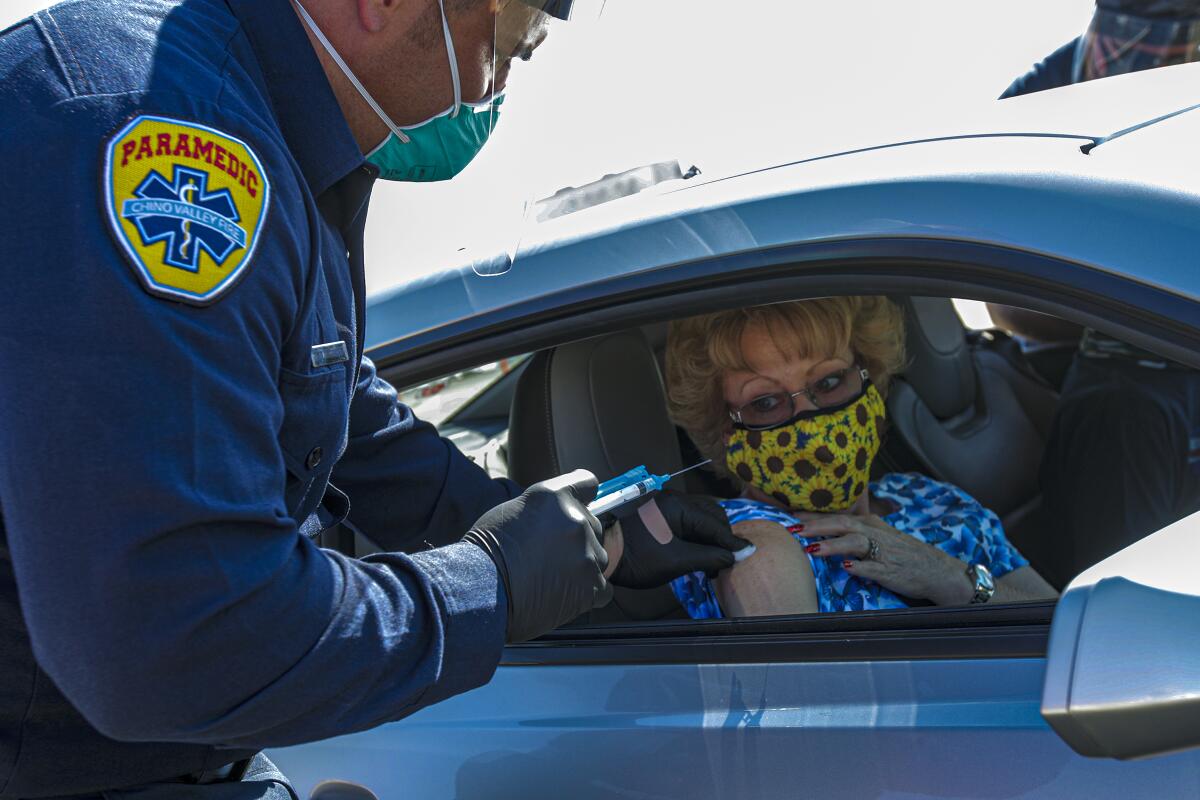
As California looks to ramp up efforts to immunize its millions of residents against COVID-19, health officials say they continue to run into a stubborn hurdle: the inability to secure a sufficient and reliable stream of vaccine doses.
The problem is twofold, officials say. First, there’s a limited supply to begin with, and some areas of the state, including Los Angeles County, have actually seen their shipments shrink over the last few weeks.
Second, both of the currently available vaccines require two doses taken weeks apart. So, the more initial doses that are doled out, the bigger the need will be for follow-up shots down the line — creating a chokepoint that constrains how many new people can begin the vaccine regimen.
Recently, some people seeking a first shot have even had their appointments canceled because vaccines were in short supply or needed for second doses.
“The supply of vaccine, we acknowledge that’s going to be our rate-limiting step,” Dr. Mark Ghaly, California’s health and human services secretary, said during a briefing Tuesday. “We always hope for more, we continue to work with the federal administration to push for more, but that will be one of our biggest challenges.”
Healthcare workers, first responders and residents and staff in skilled nursing facilities were the first groups eligible to receive the vaccine in California. That changed in mid-January, when Gov. Gavin Newsom expanded the pool to include people 65 and older.
Giving the COVID-19 vaccine to people who are due their second dose could mean less vaccine available for people seeking their first shot.
While some greeted the news that older Californians — who have fallen severely ill and died from COVID-19 at distressingly disproportionate rates — were being given a place in line, the state’s move came amid dwindling doses, and sparked chaos and confusion as some counties moved quickly to allow seniors to enter their queues, while others did not.
In L.A. County, older residents were able to schedule vaccine appointments beginning the week of Jan. 18, meaning second doses will have to start going out next week.
However, the number of doses the county receives has been inconsistent and trending downward. For the week of Jan. 11, L.A. County received 193,950 vaccine doses; the following week, it received only 168,575 doses and only 146,225 doses the week after that.
As of Jan. 25, the county had received nearly 1 million vaccine doses and administered almost 800,000.
Given the relatively scarce supply, vaccines will need to increasingly be set aside for second doses — leaving fewer shots for people looking to begin the regimen.
Ralphs cancels COVID-19 vaccine appointments amid severe shortages in supply.
Last week, the L.A. County Public Health Department, acting at the request of the California Department of Public Health, “recovered” 10,000 doses from Ralphs pharmacies that were intended for upcoming appointments — allocating them instead to support the county’s mass vaccination sites.
While a spokesman for the supermarket chain said only people seeking their first dose would be affected and that those scheduled to get their second dose would still get their shots, the episode underscored how the need for second doses is overriding overwhelming demand for initial inoculations.
The move also added to confusion among residents older than 65. According to the county, those who received their first shot at Ralphs before Jan. 27 will get a call or email from the pharmacy to schedule their second dose. Those inoculated after that date will be given appointments for their second dose when they get their first dose.
The vaccine shortage is not just in L.A., either. Kaiser Permanente was forced to cancel more than 5,000 appointments for seniors in Santa Clara County because of limited supplies.
A shortage of vaccine has forced Kaiser Permanente to cancel more than 5,000 appointments for seniors to be inoculated in Santa Clara County.
In what Kaiser Permanente spokesman Marc Brown called “a very unfortunate development,” the hospital failed to receive the vaccines it anticipated when people had booked appointments for late January and early February.
Brown said staff members had scheduled people for the vaccine based on previous deliveries and “guidance” from the state and county.
“We understand the frustration this causes, and we are continuing to do all we can to increase the supply of vaccines, working in partnership with county, state and federal governments,” Brown said in an email in response to questions from The Times.
Despite the persistent problems that have dogged the rollout, however, there are some signs that California may be starting to build momentum.
About 7.4% of Californians have received at least one dose, data compiled by The Times show, and the state has administered almost 63% of the doses that have been delivered so far — a dramatic improvement from a week ago.
Experts say about most Americans will need to be vaccinated to bring the coronavirus pandemic under control. Track California’s progress toward that goal.
Additional groups are also starting to get their shots. Cal State Long Beach started its vaccination program Tuesday, with the top priority being personnel working on campus and staff and faculty 65 and older or who have high-risk medical conditions.
“These educators and staff have been working on campus, and we are getting folks vaccinated to ensure we can get our campus fully reopened safely,” Long Beach Mayor Robert Garcia wrote on Twitter.
Workers at the Union Rescue Mission on skid row also escorted some of their older homeless clients to be vaccinated Tuesday.
“They were very excited and relieved to have a chance to be vaccinated,” said the Rev. Andy Bales, president and chief executive of the mission.
Bales said about seven men received their shots Tuesday, but the hope is to get 40 seniors — men and women — their first dose this week.
For a time, it appeared that L.A.’s homeless population had largely escaped the ravages of the pandemic. But this latest surge was different and left no group in the hard-hit county unscathed.
“It’s been alarming,” Bales said. “And I know, for me, it’s felt like COVID-19 has been closing in around us, and really, it seems like it’s been figuring out its way around every precaution. I know that’s what a lot of our guests feel as well.”
Ghaly said that the state is continuing to work through updating vaccine prioritization — and that additional details could be released in the next week. He emphasized, though, that equity will be a cornerstone of California’s approach.
“This notion that there’s a choice that we have to make between speed in vaccinations and equity, this is not a choice,” he said. “This is a false choice. We can do both.”
However, the concept of moving to an age-based formula has already drawn criticism from groups representing some essential workers and disabled people.
Though he didn’t offer specifics on what changes may be coming, Ghaly said, “we are leading our vaccination effort by focusing on protecting those who have the highest risk and those who may suffer the worst consequences from COVID” and that the state is “working with the disability community, working with those who take care of individuals with serious chronic conditions, beginning to galvanize around a policy that we will announce later.”
More to Read
Sign up for Essential California
The most important California stories and recommendations in your inbox every morning.
You may occasionally receive promotional content from the Los Angeles Times.
